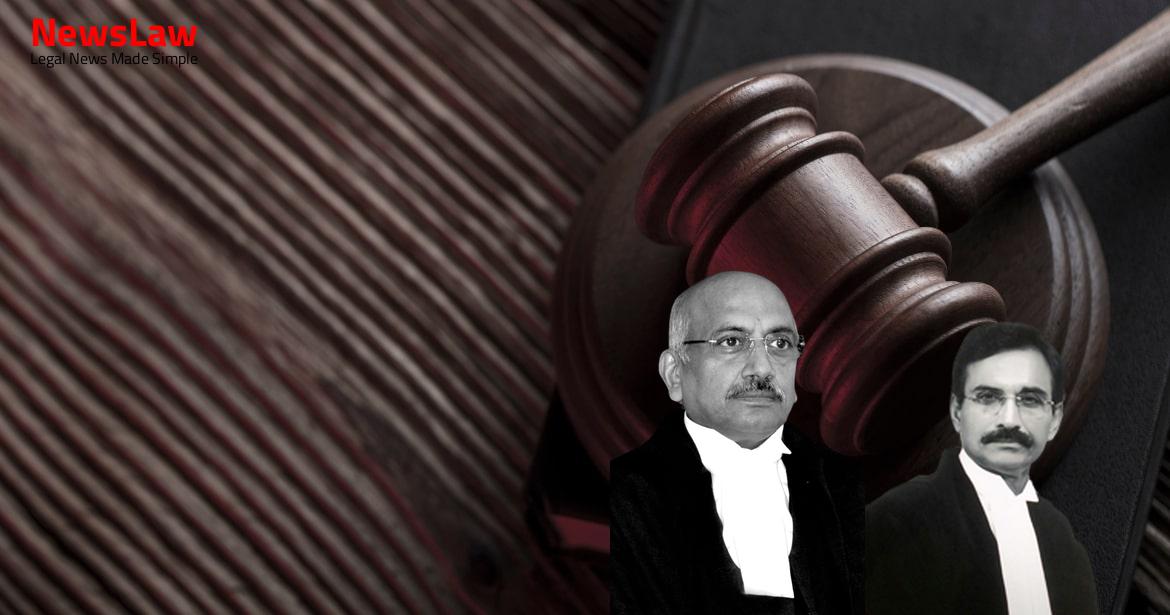In a recent legal case concerning the violation of the Pre-Natal Diagnostic Techniques (Regulation and Prevention of Misuse) Act, the Court’s analysis on the bail denial sheds light on the complexities of the case. The legal reasoning and observations made by the Court are crucial in understanding the implications of the case. Stay tuned for a detailed insight into the legal aspects of the matter.
Facts
- The first bail application (Bail Application No 1203/2020) was rejected by the IV Additional Sessions Judge, Morena on 01.10.2020.
- Subsequent bail application in MCRC No 48262 of 2020 before the Madhya Pradesh High Court on 7.12.2020 was also rejected.
- An FIR was registered against the Petitioner and another person on 26.9.2020 in PS City Kotwali Morena, Madhya Pradesh for pre-natal sex determination and abortion of female fetuses at their residence without proper registration or license.
- The petitioner has been in custody since September 2020.
- Chargesheet filed on 6.11.2020 against petitioner and co-accused for offences under relevant provisions of IPC, Medical Termination of Pregnancy Act, and PC&PNDT Act.
- High Court (MCRC-39649-2020) dismissed as withdrawn on 14.10.2020.
- High Court denied bail on facts on 7.12.2020.
- Petitioner approached High Court again for bail under Section 439, Cr.P.C.
- Section 23 makes violation of PC&PNDT Act a penal offence.
- Section 6 prohibits use of pre-natal diagnostic techniques for determining fetus’s sex.
- Allegations against petitioner primarily relate to violation of PC&PNDT Act.
- Petitioner seeks bail from the Court.
Also Read: Court’s Jurisdiction in Re-appraising Arbitrator’s Findings
Analysis
- Pre-Natal Diagnostic Techniques (Regulation and Prevention of Misuse) Act, 1994 (PC&PNDT Act) was passed to address the issue of pre-natal sex determination and female feticide.
- The Act has not been effectively implemented, with only a small number of convictions despite numerous court cases.
- The prevalence of sex-selective abortion and female feticide is a serious issue in India, with a skewed sex ratio reflecting the societal preference for male children.
- The Act mandates non-bailable, non-compoundable, and cognizable offenses for all violations.
- The investigative team seized illegal medical equipment used for sex determination and abortion, establishing a strong prima facie case against the petitioner.
- There is a lack of proper supervision and monitoring of sonography centers and medical facilities to prevent misuse of pre-natal diagnostic techniques.
- The legislative history of the Act reveals the cultural preference for male children in India and the patriarchal factors contributing to the prevalence of sex-selective practices.
- The Act was passed in response to global concerns about violence against women, particularly in the form of female feticide and pre-natal sex selection.
- The authorities need to increase vigilance and enforcement actions to effectively combat the illegal practices of sex determination and female feticide.
- The purpose of the Act is to prohibit sex selection before or after conception.
- The Act regulates prenatal diagnostic techniques for detecting genetic abnormalities, metabolic disorders, chromosomal abnormalities, congenital malformations, and sex-linked disorders.
- The Act aims to prevent misuse of prenatal diagnostic techniques for sex determination leading to female foeticide.
- The observations of this Court in Voluntary Health Association of India v. State of Punjab, (2013) 4 SCC 1 are beneficial to refer to.
- Granting of parity with the co-accused to the petitioner is not justified.
- The impugned order of the High Court denying bail to the petitioner is upheld.
- The petitioner is allowed to request the Trial Court for expedited trial to be completed within 1 year.
- Prima facie evidence against the petitioner is present.
Also Read: Contrary Directions in Issuance of Letter of Intent
Decision
- Observations made on facts will not affect Trial Court’s completion of trial or decision
- Trial Court will decide the matter based on its own merits and facts
- Special Leave Petition is dismissed
Also Read: Application for Stay in Civil Suit Rejected: Court’s Legal Analysis
Case Title: SMT. REKHA SENGAR Vs. THE STATE OF MADHYA PRADESH (2021 INSC 37)
Case Number: SLP(Crl) No.-000380 / 2021



